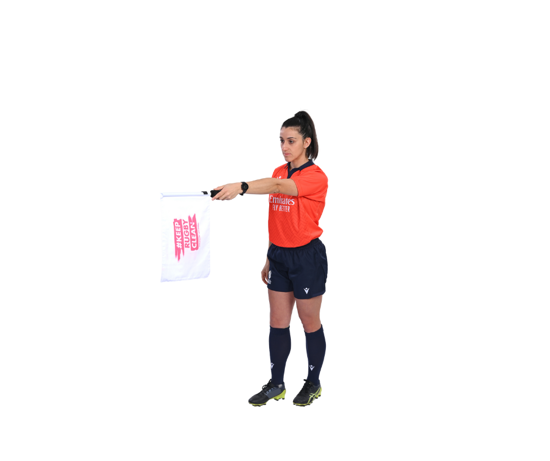Foul play
The Assistant Referee should communicate to the Referee any obvious infringement where the Referee was unsighted and where the infringement has had a material effect. All incidents of foul play should be
signalled irrespective of whether the Assistant Referee believes that the Referee has witnessed the offence.

Foul Play is covered by Law 9. It is crucial that an Assistant Referee understands this law and is able to apply it.
The following simple principles should help the Assistant Referee to report foul play accurately:
Observing the incident
- ensure appropriate positioning to observe foul play
- observing incidents and those involved in the incident
- immediately signalling for foul play.
Preparing the information
Assistant Referees should make a mental note of the following information:
- which player committed the offence - the number(s) of the player(s) and the team(s)
- what the offence(s) was or were
- where the offence(s) occurred.
Reporting the information
At the next stoppage in play, the Referee should lead the conversation allowing the Assistant Referee to provide the information as prepared above. Clarity of the information provided to the Referee will allow them to make an appropriate decision. Reporting of the information may also be done in live play should the situation allow.
The Referee may ask for a recommended sanction which could be:
- admonishment
- Yellow Card
- Red Card.
The Referee may, of course, decide on a different course of action from that which is recommended.
Listen to the interaction between the Referee and the Assistant Referee in the example below.
Head Contact Process
The Referee and Assistant Referee must be aware of, and apply the Head Contact Process when required.